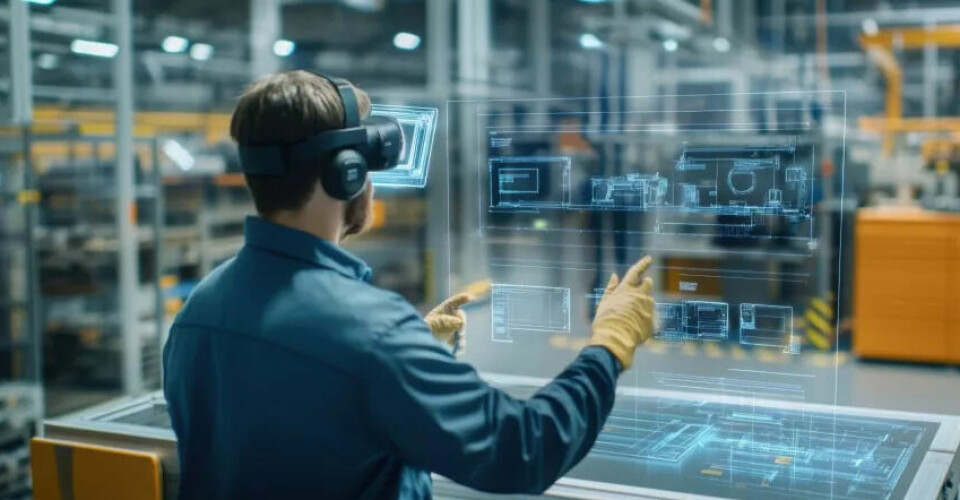Judith Brenner, Mercedes-Benz
“Industrial Metaverse is in its Infancy”

Virtual factories, digital twins, and immersive training: The metaverse offers great potential for efficiency gains in automotive production. Learn more in the interview with doctoral candidate Judith Brenner.
Ms. Brenner, what role does the Metaverse currently play in vehicle production, and how do you see its strategic value in the next five to ten years?
Individual use cases of the industrial Metaverse already enable savings in time, costs, and resources today. In the next five to ten years, the Metaverse will gain strategic importance, especially through the stronger connection of digital twins and data-driven production planning. We can expect that future manufacturing processes will increasingly be planned, validated, and implemented more efficiently virtually.
In which applications of the Metaverse do you see the greatest added value for the automotive industry?
Basically, the Industrial Metaverse is not limited to individual applications but covers the entire value chain. Today, we already see the greatest added value in research and practice in product development, production planning, and employee training. Virtual prototypes allow development processes to be validated early. Production planning can be realistically simulated and optimized through virtual factory models. Additionally, immersive training environments offer employees the opportunity to learn complex production processes without risk.
What are the biggest challenges faced by automotive manufacturers and suppliers who want to integrate Metaverse technologies?
A key challenge is the standardization and interoperability of systems. Different platforms must be able to communicate seamlessly with each other. In addition, there are issues of data protection and cybersecurity, which are particularly critical in the industrial context. Last but not least, the successful integration of Metaverse technologies requires a rethinking of corporate culture, as new skills and digital mindsets become necessary. Industrial Metaverse is not just a "technology" topic.
How can the data used in the Metaverse remain safe and secure?
Protecting sensitive data in the Metaverse requires a combination of technological and organizational measures. These include encryption technologies and role concepts. Equally important is the training of employees in cybersecurity measures. Companies must also establish clear data protection policies and strictly control access to critical information.
How far is the automotive industry from a fully "virtual factory" where all production processes can be simulated in advance in the metaverse?
Industrial Metaverse is in its infancy. Some companies, including Mercedes-Benz, are already using digital twins and comprehensive simulation environments. The challenge lies in fully integrating all production processes and systems and mapping them in real-time. However, with the increasing networking of machines and greater data availability, the vision of the "virtual factory" is becoming more tangible.
What are the biggest challenges faced by automotive manufacturers and suppliers who want to integrate Metaverse technologies?
A key challenge is the standardization and interoperability of systems. Different platforms must be able to communicate seamlessly with each other. In addition, there are issues of data protection and cybersecurity, which are particularly critical in the industrial context. Last but not least, the successful integration of Metaverse technologies requires a rethinking of corporate culture, as new skills and digital mindsets become necessary. Industrial Metaverse is not just a "technology" topic.
How can the data used in the Metaverse remain safe and secure?
Protecting sensitive data in the Metaverse requires a combination of technological and organizational measures. These include encryption technologies and role concepts. Equally important is the training of employees in cybersecurity measures. Companies must also establish clear data protection policies and strictly control access to critical information.
How far is the automotive industry from a fully "virtual factory" where all production processes can be simulated in advance in the metaverse?
Industrial Metaverse is in its infancy. Some companies, including Mercedes-Benz, are already using digital twins and comprehensive simulation environments. The challenge lies in fully integrating all production processes and systems and mapping them in real-time. However, with the increasing networking of machines and greater data availability, the vision of the "virtual factory" is becoming more tangible.
